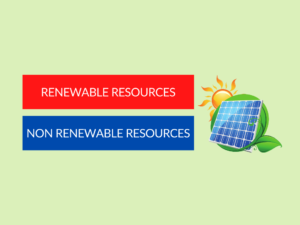Engaging 50-word intro:
Efficiency and effectiveness are two important concepts that are often used in business and management. While they may seem similar, they have distinct meanings and applications. In this comprehensive article, we will explore the definitions, examples, and uses of efficiency and effectiveness. Furthermore, we will provide a detailed table that highlights the key differences between the two. So, let’s dive in and discover the intricacies of efficiency and effectiveness!
What is Efficiency?
Efficiency refers to the ability to accomplish a task or goal using the fewest possible resources. It focuses on optimizing the processes and eliminating wasteful activities. Efficiency is about doing things right and maximizing productivity. In business, this can mean reducing costs, minimizing time wastage, or streamlining operations to achieve higher outputs.
Examples of Efficiency:
– An automobile manufacturing plant implements robotic technology to automate the production line, reducing the number of human errors and increasing the production rate.
– A customer support team uses pre-defined templates and knowledge bases to respond to common queries, saving time and providing faster resolution to customers.
Uses of Efficiency:
Efficiency has various applications across industries, including:
– Manufacturing: Improving production processes, reducing waste, and optimizing resource utilization.
– Service Sector: Enhancing customer service, reducing response time, and improving service delivery.
– Energy Sector: Minimizing energy consumption, utilizing renewable energy sources, and reducing carbon footprint.
What is Effectiveness?
Effectiveness, on the other hand, refers to the degree of success in achieving a desired outcome or goal. It focuses on the results and impact of an action. Effectiveness is about doing the right things and achieving desired objectives. In business, this can mean meeting customer needs, achieving sales targets, or delivering quality products/services.
Examples of Effectiveness:
– An advertising campaign that successfully increases brand awareness and boosts sales.
– A training program that enhances the skills and performance of employees, leading to improved customer satisfaction.
Uses of Effectiveness:
Effectiveness is essential in various aspects of business and management, such as:
– Marketing: Developing effective marketing strategies, targeting the right audience, and achieving desired promotional outcomes.
– Project Management: Ensuring projects are completed on time, within budget, and meeting the defined objectives.
– Leadership: Implementing effective leadership practices to motivate and inspire employees, resulting in higher productivity and improved team performance.
Differences Table:
| Difference Area | Efficiency | Effectiveness |
|---|---|---|
| Purpose | Doing things right | Doing the right things |
| Focused On | Process | Outcome |
| Resource Usage | Minimizing resource wastage | Optimizing resource allocation |
| Emphasis | Productivity | Quality and achievement of goals |
| Measures | Utilization rates, output per unit | Goal attainment, customer satisfaction |
| Approach | Improving processes and eliminating waste | Strategic planning and execution |
| Focus | Efficient use of resources | Achieving desired outcomes |
| Time Perspective | Short-term | Long-term |
| Question | How to do things better? | What needs to be achieved? |
| Related Concept | Productivity | Efficiency |
Conclusion:
In summary, efficiency focuses on performing tasks and utilizing resources in the most effective and productive way, while effectiveness emphasizes achieving desired outcomes and goals. Efficiency is concerned with doing things right, whereas effectiveness is concerned with doing the right things. Both concepts are crucial in businesses, and their proper combination can lead to outstanding results.
People Also Ask:
Q: How is efficiency different from productivity?
A: Efficiency focuses on minimizing wasted resources, while productivity measures output in relation to input.
Q: Can an organization be efficient but not effective?
A: Yes, an organization can be efficient in its processes but fail to achieve the desired outcomes, indicating a lack of effectiveness.
Q: Which is more important: efficiency or effectiveness?
A: Both efficiency and effectiveness are important, but their relative importance may vary depending on the context and goals of an organization.
Q: How can efficiency and effectiveness be improved?
A: Efficiency can be improved through process optimization, automation, and waste reduction. Effectiveness can be enhanced through strategic planning, setting clear objectives, and continuous evaluation.
Q: How can efficiency and effectiveness be balanced?
A: Balancing efficiency and effectiveness requires aligning resources, processes, and goals to ensure optimal performance and desired outcomes.




